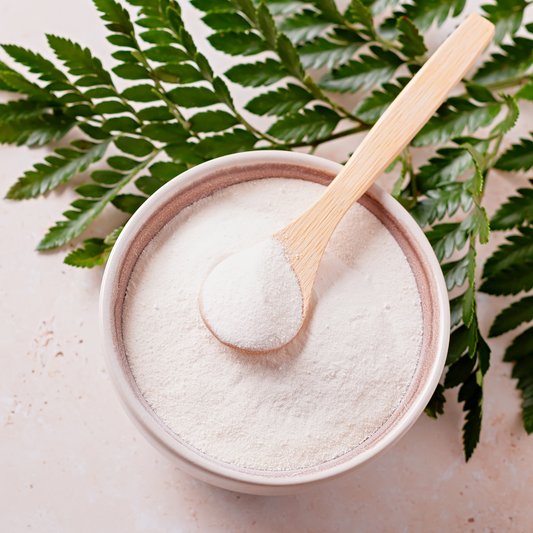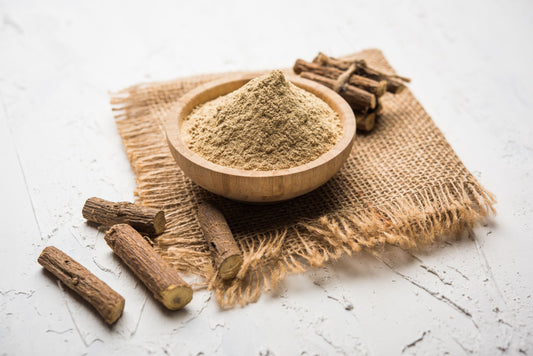If you suffer from GERD (gastroesophageal reflux disease) and are looking for a natural remedy to alleviate your symptoms, slippery elm may be worth considering. This herbal remedy has been used for centuries to soothe and protect the lining of the esophagus, providing relief from heartburn and other GERD symptoms. Read on to learn more about the benefits of slippery elm for GERD and how to incorporate it into your treatment plan.
What is GERD?
GERD, or gastroesophageal reflux disease, is a chronic condition where stomach acid flows back into the esophagus, causing symptoms such as heartburn, regurgitation, and chest pain. It occurs when the lower esophageal sphincter (LES), a muscle that acts as a valve between the stomach and the esophagus, becomes weak or relaxes abnormally. This allows stomach acid to irritate the lining of the esophagus, leading to discomfort and potential damage over time. GERD is a common condition that affects millions of people worldwide and can significantly impact their quality of life.
Understanding the discomfort of heartburn
Heartburn is a common symptom of GERD and can cause significant discomfort. It is characterized by a burning sensation in the chest, often accompanied by a sour or bitter taste in the mouth. This discomfort is caused by the stomach acid that flows back into the esophagus, irritating the sensitive lining. Heartburn can occur after eating certain foods, lying down, or bending over, and can last for several hours. If left untreated, it can lead to complications such as esophageal ulcers or strictures. Understanding the causes and triggers of heartburn is essential for finding relief and managing GERD effectively.
Slippery Elm for Heartburn Relief
Slippery elm is a natural herbal remedy that has been used for centuries to soothe and heal various digestive issues, including GERD. It is derived from the inner bark of the slippery elm tree and contains a substance called mucilage, which forms a protective layer in the esophagus and stomach, reducing the effects of stomach acid. Slippery elm can help alleviate the symptoms of GERD, such as heartburn, by providing a soothing and protective barrier. This study found that a herbal formula with slippery elm designed to soothe and protect the gastric mucosa may be a better alternative than acid-suppressive drugs for people suffering with gastric irritation and GERD.
6 Research Proven Benefits of Slippery Elm for GERD
- Forms a protective layer called mucilage in the esophagus and stomach.
- Mitigates involuntary reflexes such as coughing and gagging.
- Reduces inflammation in the digestive tract.
- Activates innate immunity and boosts the immune system.
- Alleviates constipation and improves bowel habits.
- Provides antioxidant effects.
BONUS: This study found that slippery elm for GERD may be a better alternative than acid-suppresive drugs.
Read on to find out the best way to take slippery elm as a supplement for GERD relief.
How does slippery elm work to alleviate symptoms?
Slippery elm works to alleviate symptoms of GERD by forming a protective layer in the esophagus and stomach. This has the effect of coating mucous membranes which mitigates involuntary reflexes (e.g. coughing, throat clearing, dry heaving…) triggered in response. Not only so, it can also help reduce inflammation in the digestive tract and promote healing. Slippery elm can be taken in various forms, such as capsules, powders, or teas, and should be consumed regularly to experience its full benefits for GERD relief. Try our Heartburn Elixir which is a drink mix that not only tastes amazing but consists of only natural ingredients for gut health support, including slippery elm powder.
Other benefits and uses of slippery elm
In addition to providing relief for GERD, slippery elm has a range of other benefits and uses. It has long been used to soothe sore throats and coughs by coating the throat and reducing irritation. A 2010 study found slippery elm to be useful in alleviating constipation dominant irritable bowl syndrome (IBS-C). It also has antioxidant effects and proved to be effective in activating innate immunity, thus preventing colds. Overall, slippery elm is a versatile herbal remedy with numerous potential benefits for various health issues.
Thanks so much for visiting GERD Health, as a girl with GERD, I fully understand the struggle in adjusting our lifestyles to accommodate our health! You don’t have to be alone in this journey, join us in reclaiming our food freedom by entering your email to stay up to date on all things GERD Health! Let’s connect in the comments!
P.s. You might want to learn about why Ginger is a Proven Miracle for Heartburn as well ;)
References:
Hawrelak, J. A., & Myers, S. P. (2010). Effects of two natural medicine formulations on irritable bowel syndrome symptoms: A pilot study. The Journal of Alternative and Complementary Medicine, 16(10), 1065–1071. https://doi.org/10.1089/acm.2009.0090
Langmead, L., Dawson, C., Hawkins, C., Banna, N., Loo, S., & Rampton, D. S. (2002). Antioxidant effects of herbal therapies used by patients with inflammatory bowel disease: An in vitro study. Alimentary Pharmacology & Therapeutics, 16(2), 197–205. https://doi.org/10.1046/j.1365-2036.2002.01157.x
Shahrajabian, M. H., Sun, W., & Cheng, Q. (2020). Traditional Herbal Medicine for the prevention and treatment of cold and flu in the autumn of 2020, overlapped with covid-19. Natural Product Communications, 15(8). https://doi.org/10.1177/1934578x20951431
Watts, Christopher & Rousseau, Bernard. (2012). Slippery Elm, its Biochemistry, and use as a Complementary and Alternative Treatment for Laryngeal Irritation. Journal of Investigational Biochemistry. 1. 17-23. 10.5455/jib.20120417052415.
Setright, R. (2017) ‘Prevention of symptoms of gastric irritation (GERD) using two herbal formulas: An observational study’, Journal of the Australian Traditional-Medicine Society. Meadowbank, NSW: Australian Traditional-Medicine Society, 23(2), pp. 68–71. https://search.informit.org/doi/10.3316/informit.950298610899394.










